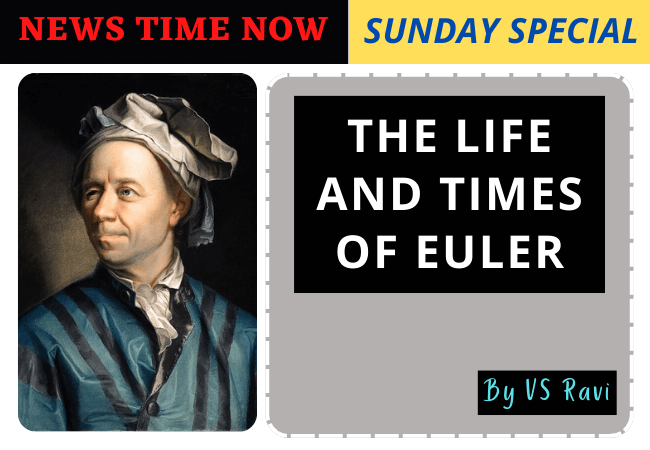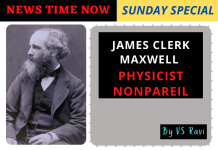Leonhard Euler was born in Basel, Switzerland, on April 15, 1707, to Margarete Brucker and her husband, Paul Euler. A Calvinist pastor who had studied mathematics with Jacob Bernoulli, Paul Euler was in a position to appreciate his son’s mathematical gifts, but initially appears to have wanted Euler to take up theology. However, Leonhard’s abilities, which included a prodigious memory, were soon apparent; he learned algebra before he was an adolescent. At fourteen, in 1720, he entered the University of Basel, where he studied medicine, theology, and the humanities, receiving the equivalent of a bachelor’s degree in 1722 and a master’s degree in philosophy the following year. Even after joining the university’s theology department, he continued to devote much of his time to mathematics and finally took it up unequivocally.
The Eulers were friendly with the Bernoulli family, and Leonhard and the sons of Jean Bernoulli, Daniel and Nicolas, became close friends. Both Bernoulli brothers took up academic positions in Russia at the invitation of Catherine I, and in 1727 asked Euler to join them at the Academy of Sciences. Initially, in consequence of Catherine’s death that year, Euler’s situation was unclear; but by 1730 he was appointed professor of physics and then professor of mathematics three years later. He subsequently played a part in Russia’s reform of weights and measures, supervised the geography department, and even wrote elementary mathematics textbooks.
The work of Leonard Euler builds upon and enlarges the success of Newtonian physics and represents the flowering of mathematics as a tool of analysis. Astronomy, the geometry of surfaces, optics, electricity and magnetism, artillery and ballistics, and hydrostatics are only some of Euler’s other fields. He put Newton’s laws, calculus, trigonometry, and algebra into a recognisably modern form. He was one of the most prolific mathematicians in history with over eight hundred fifty articles and books to his credit.
His output did not diminish even as he went blind in old age and after his death, the St. Petersburg Academy continued to publish his articles for the next half century. Reading his popular Letters to a German Princess today, one finds a model of logic, clear exposition, and bourgeois morality. “This is indeed the best world possible,” wrote Euler, “as every thing in it concurs to promote our eternal salvation”.
With the publication of Principia Mathematica by Isaac Newton in 1687, the possibilities for mathematics expanded enormously. During the 1730s, partly in conjunction with Bernoulli, Euler overhauled Newton’s language and notation, developing some of the familiar algebraic symbols as well as theorems in trigonometry and geometry. His 1736 treatise, Mechanica, represented the flourishing state of Newtonian physics under the rubric of mathematics, bringing to mechanics a universality which until then it possessed more in principle than practice.
In 1741 Euler left Russia to become professor of mathematics at the Berlin Academy of Sciences and to take his place at the court of the new king of Prussia, Frederick the Great.
Here Eule became prosperous and well known, the owner of a home in Berlin and a farm on its ourskirts. His treatise on the calculus of variations appeared in 1744, and his Introductio in analysin infinitorun printed in 1748, is an introduction to pure mathematics, in which Euler treats algebra, the theory of equations, and trigonometry, as well as providing a treatise on analytical geometry. Euler also published the first two complete treatises on calculus: Institutiones calculi differentialis, from 1755, and Institutiones calculi integralis, from 1768. The Berlin period was remarkably fertile, with some two hundred and seventy-five publications.
Although Frederick the Great made considerable use of Euler’s abilities for practical ends in problems of engineering and finance, Euler was not a popular figure at court. Frederick understood nothing of mathematics, and their relations eventually went awry. Euler did publish Letters to a German Princess, lessons in natural science for the princess of Anhalt-Dessau. This book was a popular success and was translated and often reprinted during the nineteenth century.
In 1766 Euler took up the offer of the Enlightenment empress Catherine the Great, who had come to power four years previously, to return to Russia. Euler was provided for in grand style. He continued to work, although his eyesight worsened; he employed his sons to help him write down long equations which he was able to keep in memory. Nor did other obstacles stop him from working in old age. Although his house burned down, his manuscripts were saved; and while efforts to restore his sight met with some success, he finally went blind entirely.
He later said that only his faith in God allowed him to bear that torment. He produced works almost until the day of his death, working on the “black slate of his mind”. In an astonishing feat, his works became more clear after his blindness set in.
A strict Calvinist, Euler read a chapter in the Bible to his large family every night-complete with some form of exhortation.
He was bourgeois in outlook and cared nothing for the insurgencies of such Enlightenment thinkers as Voltaire. Wrote Sir David Brewster of Euler in 1833, “In all his habits he was sober and temperate, in his temper lively and cheerful. In his moral and religious character there is much to admire.” When his first wife, Katharina Gsell, died in 1776 after a long and happy marriage, Euler soon turned around and married her half-sister.
Despite his total blindness Euler remained virile and powerful of mind to the very second of his death, at the age of seventy seven, on September 18, 1783. That day he had amused himself by calculating the laws of ascent of balloons, dined with his family and friends. He even calculated the orbit of Uranus discovered by Herschel. He suffered a fatal stroke while playing with his grandson.
His last words, were “I die.”
E.T . Bell wrote in his ” Men of Mathematics”
‘for sheer manipulative ability in tangled algebra, Euler, and Jacobi, have had no rival, unless it be the Indian mathematical genius Sreenivasa Ramanujan in our own century( 20th century)’. E.T.Bell referred to Euler as” Analysis Incarnate”
The French mathematician Laplace wrote “Read Euler, read Euler. He is the master of us all”.
Another French mathematician, Arago, wrote
” Euler calculated without apparent effort, as men breathe, or eagles sustain themselves in the wind” His work greatly influenced Riemann and Maxwell .He wrote textbooks that remained standards for hundreds of years. He wrote research papers at the rate of 800 per year,
Archimedes, Newton and Gauss are generally considered the three greatest mathematicians of all time. I am inclined to add Euler to this list !



















































